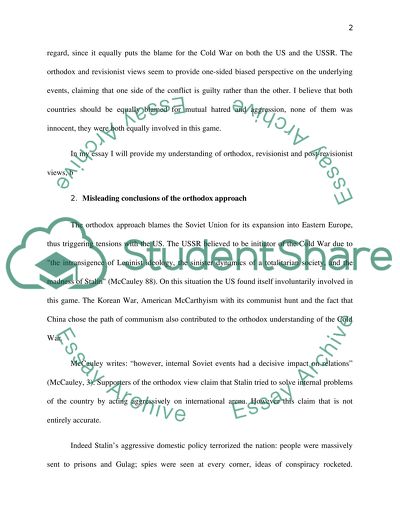Cite this document
(“The Origins Of The Cold War Assignment Example | Topics and Well Written Essays - 1750 words”, n.d.)
Retrieved from https://studentshare.org/family-consumer-science/1418209-the-origins-of-the-cold-war
Retrieved from https://studentshare.org/family-consumer-science/1418209-the-origins-of-the-cold-war
(The Origins Of The Cold War Assignment Example | Topics and Well Written Essays - 1750 Words)
https://studentshare.org/family-consumer-science/1418209-the-origins-of-the-cold-war.
https://studentshare.org/family-consumer-science/1418209-the-origins-of-the-cold-war.
“The Origins Of The Cold War Assignment Example | Topics and Well Written Essays - 1750 Words”, n.d. https://studentshare.org/family-consumer-science/1418209-the-origins-of-the-cold-war.


